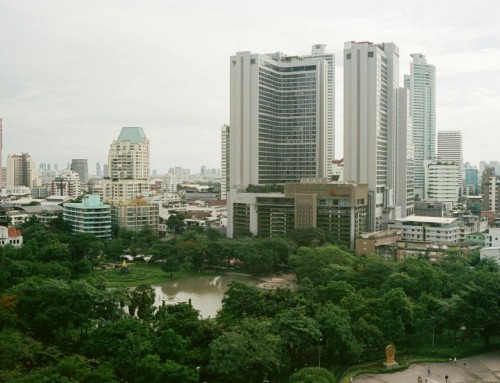Many times when private property buyers issue an option to purchase, it will mention that the sale of the property is subject to the Law Society Conditions of Sale 2012 or 1999. Buyers and sellers may at times not know the differences or even understand what the Conditions of Sale are. In this article, I will try my best to explain and differentiate the two. However, if you would like to have a better understanding, do consult a lawyer. My article is based on my understanding as a real estate practitioner and serves as a basic guide to buyers, sellers and anyone dealing with real estate in Singapore.
What are the Conditions of Sale for?
The Conditions of Sale spell out the rights and obligations of both the seller and the buyer of a property transaction. In general, it is a set of document that will be referred to if it is stated in the Option to Purchase. There are many terms in the Conditions of Sale and these terms cannot be spelt out in the Option to Purchase. The Law Society does update these Conditions of Sale from time to time and will provide conveyancing guidelines to better interpret the terms and conditions in the Conditions of Sale. In general, the law is dynamic and ever-changing and thus there is a need to update the Conditions of Sale from time to time. This is the reason why today, there are some Option to Purchases which refer to the Law Society Conditions of Sale 1999 and some that refer to the Law Society Conditions of Sale 2012.
It is not mandatory for these Conditions of Sale to be included in every Option to Purchase agreement. It is up to the various parties in the transaction to decide whether to include them in the agreement. You can find the various Law Society Conditions of Sale at the links below.
The Law Society Conditions of Sale 1999
The Law Society Conditions of Sale 2012
So what are the differences?
Both Conditions of Sale can be used in Option to Purchase documents. Thus, as a buyer, seller or property agent, it would be wise to understand the various differences and then decide which better suits the particular situation. I will spell out the difference in reference to the conditions in both Conditions of Sale mainly with reference to The Law Society Conditions of Sale 2012.
The as is and where is clause
Condition 5: State and Condition of Property to be Delivered
Condition 8: State of Property as to Repair, etc
Condition 10: Vendor’s Representation and Warranties
In The Law Society Conditions of Sale 1999, the buyer is buying the property in the actual state in which the property is presented to him. The buyer cannot use the reason that he was unaware of certain defects to void the sale or claim for damages from the seller.
In The Law Society Conditions of Sale 2012, the as in and where is clause is now made subject to conditions 5 and 10. Condition 5 states that the seller must “deliver the property in the same state and condition as it was at the date of the option of the date of the contract, whichever is earlier, (save for fair wear and tear) unless otherwise agreed to by the parties”. This means that the seller is responsible for the state of the property up to the completion of the transaction. This spells out the seller’s responsibility to upkeep the property in a reasonable manner even though he has already sold the property and is merely waiting for completion. He is thus liable if the state of the property handed to the buyer during completion differs from that during the time when he sold the option to the buyer, save for wear and tear.
Condition 10 also contains a clause that states that the seller “has not carried out any unauthorised additions or alterations to the Property”. It is not uncommon for certain homeowners to do certain renovation and alteration to their property without seeking the relevant approval or submitting these changes to the relevant authorities. This clause is advantageous for homebuyers as it means that the buyer can claim from the seller if there were a need to rectify the unauthorised modifications in future. This would provide a more transparent platform when negotiating and if the buyers are made aware of the modifications, they can be drafted into the contract and state that they are aware of such modifications and not hold the sellers liable for any future costs to rectify them. Well, alternatively they could just use the earlier Conditions of Sale as well.
The tax clause
Condition 7: Tax
In the Law Society Conditions of Sale 2012, it is stated that if the contract is silent as to whether the purchase price of the property includes GST and if the transaction is subject to GST, then the buyer will be liable to pay for the GST. There were cases in the past whereby it was not explicitly stated who should bear the GST and this clause serves to clarify this ambiguity.
The late completion interest clause
Condition 9: Late Completion Interest
The liability of who has to pay for late completion interest still remains the same. If the completion is delayed due to one party, that party has to pay late completion interest as liquidated damages. In The Law Society Conditions of Sale 1999, the late completion interest was calculated based on a relevant sum at 10 per cent per annum, pro-rated according to the number of days delayed. In The Law Society Conditions of Sale 2012, the interest is lowered to 8 per cent. This is perhaps to reflect the fact that market interest rates have generally been lower.
The special conditions clause
Condition 16: Special Conditions
This clause states that if there are special conditions for the sale and purchase agreement between the seller and the buyer and if these special conditions conflict with The Law Society Conditions of Sale 2012, then the special conditions will prevail. This allows the seller and the buyer the freedom to negotiate additional terms and add them on to the sale and purchase agreement without having to worry that these additional terms conflict The Law Society Conditions of Sale 2012.
These are the clauses which I would highlight especially to my clients when they are transacting a property. There are other changes and differences between the two Conditions of Sale and my article is not exhaustive. Also, please note that I am not a lawyer but a real estate practitioner and this article should not serve as legal advice. If you would like to have proper legal advice on which Conditions of Sale you should be using in your property transaction, you should be speaking to a lawyer.
Yours Sincerely,
Daryl Lum
Other articles which you may find useful
Guide to costs when buying a resale private property in Singapore






